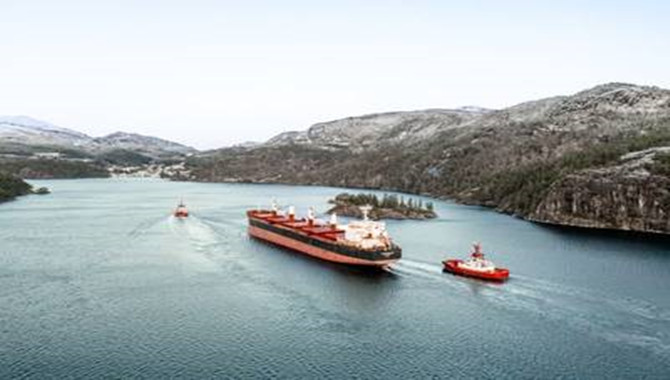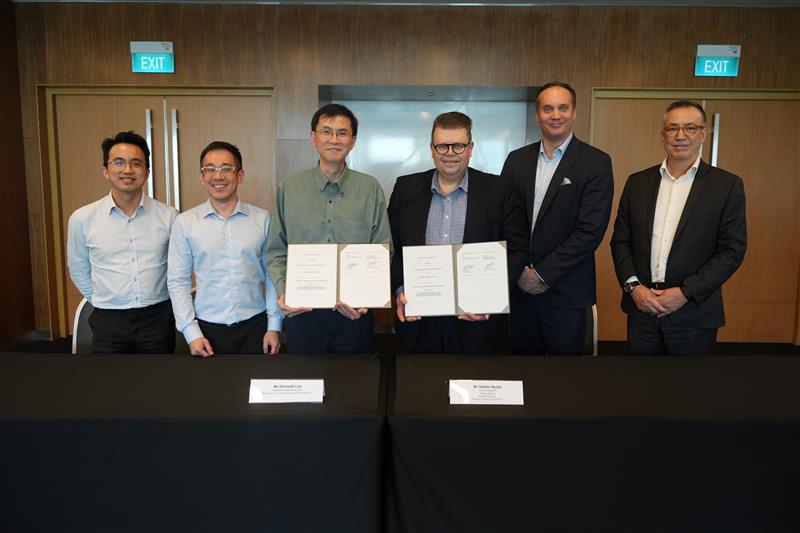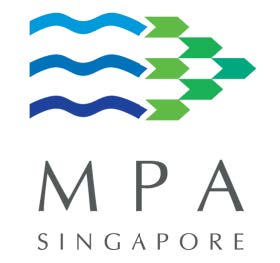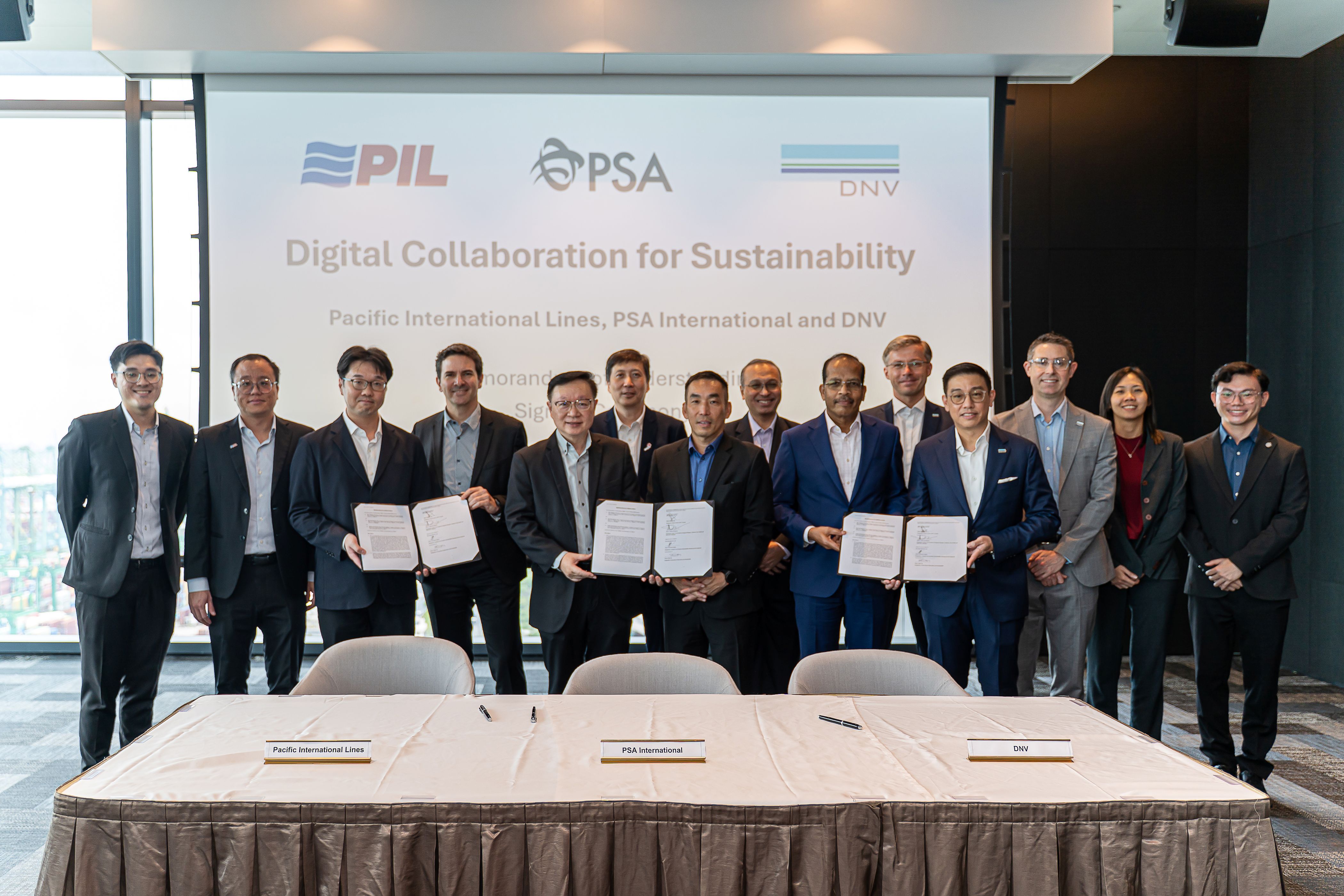The Stamford Eagle is shown here sailing on 100% sustainable biofuel near Sauda in Norway’s Sandsfjord.
U.S.-based dry bulk shipowner Eagle Bulk Shipping on Wednesday revealed it recently tested biofuels as a means to reduce carbon emissions from its vessel Stamford Eagle.
The voyage, completed on GoodFuels' MDF1-100 sustainable biofuel, provided an approximately 80% reduction in net well-to-wake CO2 emissions compared to equivalent fossil fuel, the company said.
A broad range of vessel owners and operators, from dredging contractors to cruise lines, have started to run their ships on biofuels as the global maritime industry explores ways to decarbonize.
Naturally lower in sulfur, biofuels burn cleaner with less particulates than heavy fuel oil (HFO) typically used by commercial vessels. As a renewable fuel, they also generate a smaller carbon footprint over their lifecycle compared to HFO.
GoodFuels' MDF1-100 used aboard Stamford Eagle recently is formulated entirely from sustainable waste streams from the EU's Renewable Energy Directive list.
Eagle Bulk, which first trialed biofuels aboard one of its vessels
in 2021, said the latest test aboard Stamford Eagle was performed in partnership with the vessel's charterer, French multinational mining and metallurgy company Eramet and its subsidiary Eramet Norway, reducing Eagle Bulk’s scope 1 emissions and Eramet’s scope 3 emissions.
"This most recent biofuel voyage demonstrates our ability to partner with charterers who share our commitment to sustainability initiatives and emissions reductions," Eagle Bulk said.
Stamford Eagle is a 61,530 dwt, 199.9-meter-long Ultramax bulk carrier built in 2016.
Source: Maritime Propulsion

 Baltic Exchange launches new Fuel Equivalence Conve
Baltic Exchange launches new Fuel Equivalence Conve  21 Consecutive Years of QUALSHIP 21 Recognition for
21 Consecutive Years of QUALSHIP 21 Recognition for  MPA and Wärtsilä Renew Partnership to Drive Marit
MPA and Wärtsilä Renew Partnership to Drive Marit  MPA and Dalian Maritime University Renew Partnershi
MPA and Dalian Maritime University Renew Partnershi  PSA INTERNATIONAL, DNV AND PACIFIC INTERNATIONAL LI
PSA INTERNATIONAL, DNV AND PACIFIC INTERNATIONAL LI  INTERCARGO Reaffirms Call for Simplicity as IMO Cli
INTERCARGO Reaffirms Call for Simplicity as IMO Cli